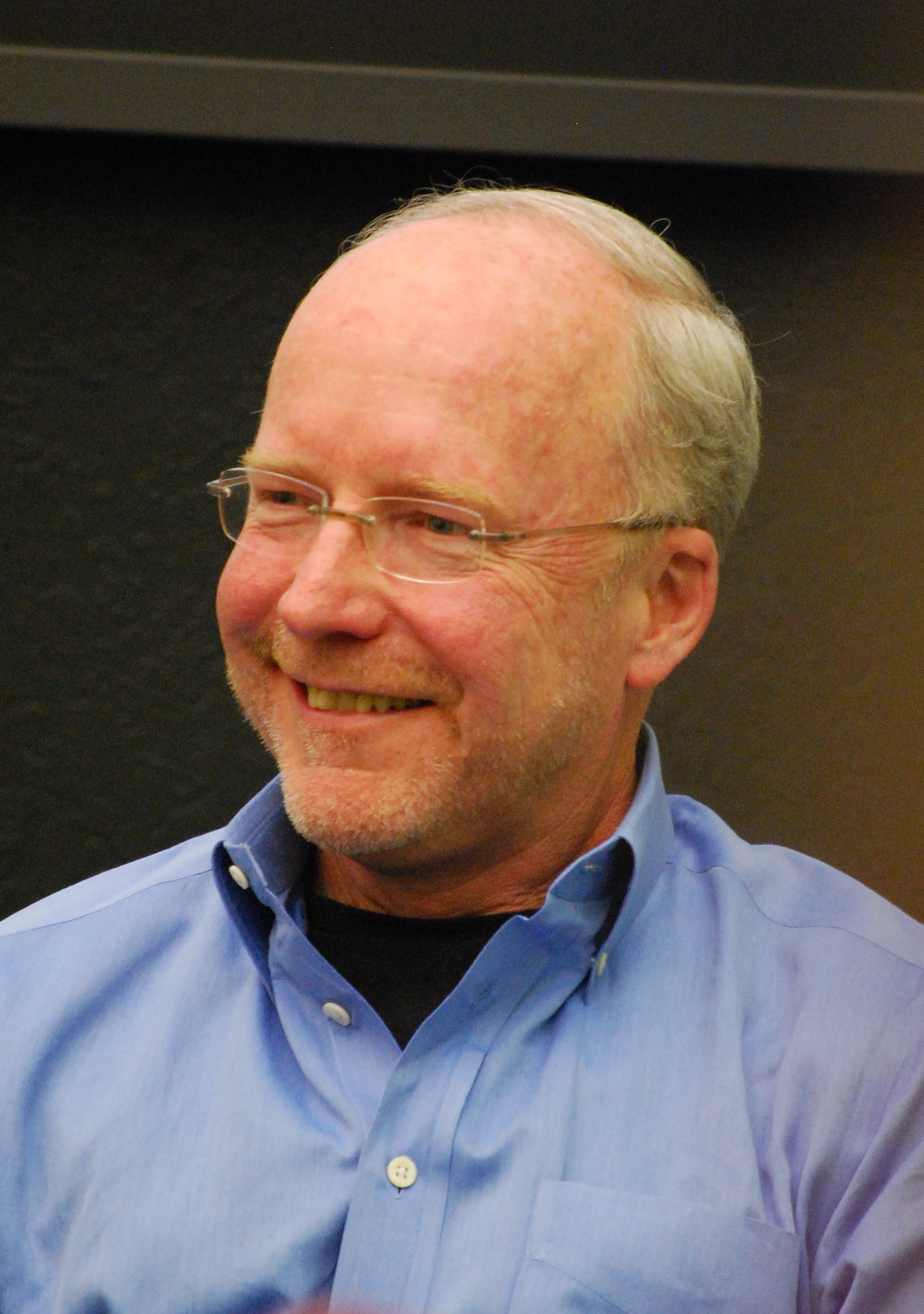|
Infomediary
An infomediary works as a personal agent on behalf of consumers to help them take control over information gathered about them for use by marketers and advertisers. The concept of the infomediary was first suggested by former McKinsey consultant John Hagel III and former Harvard Business School professor Jeffrey Rayport in their article ''The Coming Battle for Customer Information''. The concept was explored in greater depth in Hagel's book (co-authored with McKinsey partner Marc Singer) ''Net Worth: Shaping Markets When Customers Make the Rules''. Infomediaries operate on the assumption that personal information is the property of the individual described, not necessarily the property of the one who gathers it. The infomediary business model recognizes that there is value in this personal data and the infomediary seeks to act as a trusted agent, providing the opportunity and means for clients to monetize and profit from their own information profiles. One of the first focused imp ... [...More Info...] [...Related Items...] OR: [Wikipedia] [Google] [Baidu] |
AllAdvantage
AllAdvantage was an Internet advertising company that positioned itself as the world’s first "infomediary" by paying its users/members a portion of the advertising revenue generated by their online viewing habits. It became most well known for its slogan "Get Paid to Surf the Web," a phrase that has since become synonymous with a wide array of online ad revenue sharing systems (see, e.g., paid to surf). History AllAdvantage was launched on March 31, 1999, by Jim Jorgensen, Johannes Pohle, Carl Anderson, and Oliver Brock. During its nearly 2 years of operation, it raised nearly $200 Million in venture capital and grew to more than 10 million members in its first 18 months of operation. The company's practice of compensating existing members for referring new members led it to become one of the most heavily promoted websites of its time. In 1999, the company had over 4 million members worldwide, in over 240 countries, having delivered more than 4 billion ads in the month of November ... [...More Info...] [...Related Items...] OR: [Wikipedia] [Google] [Baidu] |
John Hagel III
John Hagel (or John Hagel III) is a management consultant and author. Hagel has spent over 40 years in Silicon Valley. He is the founder of two technology startups and served as the Senior Vice President for Strategic Planning at Atari, Inc. He spent 16 years at McKinsey & Company, where he helped open their Silicon Valley office and served as a leader of their strategy practice as well as founded their e-commerce practice in 1993. Hagel has also been a consultant at Boston Consulting Group. In 2007, Hagel founded the Deloitte Center for the Edge, a Silicon Valley-based research center. The Center for the Edge now has offices in Amsterdam and Melbourne. Hagel is also involved with several other organizations, including the World Economic Forum, where he currently serves as co-chair of the Global Future Council on the Future of Platforms and Systems. He is also on the Board of Trustees of the Santa Fe Institute, an organization that conducts research on complex adaptive systems, a ... [...More Info...] [...Related Items...] OR: [Wikipedia] [Google] [Baidu] |
Personal Agent
In artificial intelligence, an intelligent agent (IA) is anything which perceives its environment, takes actions autonomously in order to achieve goals, and may improve its performance with learning or may use knowledge. They may be simple or complex — a thermostat is considered an example of an intelligent agent, as is a human being, as is any system that meets the definition, such as a firm, a state, or a biome. Leading AI textbooks define "artificial intelligence" as the "study and design of intelligent agents", a definition that considers goal-directed behavior to be the essence of intelligence. Goal-directed agents are also described using a term borrowed from economics, "rational agent". An agent has an "objective function" that encapsulates all the IA's goals. Such an agent is designed to create and execute whatever plan will, upon completion, maximize the expected value of the objective function. For example, a reinforcement learning agent has a "reward function" th ... [...More Info...] [...Related Items...] OR: [Wikipedia] [Google] [Baidu] |
Business Model
A business model describes how an organization creates, delivers, and captures value,''Business Model Generation'', Alexander Osterwalder, Yves Pigneur, Alan Smith, and 470 practitioners from 45 countries, self-published, 2010 in economic, social, cultural or other contexts. The process of business model construction and modification is also called ''business model innovation'' and forms a part of business strategy. In theory and practice, the term ''business model'' is used for a broad range of informal and formal descriptions to represent core aspects of an organization or business, including purpose, business process, target customers, offerings, strategies, infrastructure, organizational structures, sourcing, trading practices, and operational processes and policies including culture. Context The literature has provided very diverse interpretations and definitions of a business model. A systematic review and analysis of manager responses to a survey defines business models ... [...More Info...] [...Related Items...] OR: [Wikipedia] [Google] [Baidu] |
Jack Balkin
Jack M. Balkin (born August 13, 1956) is an American legal scholar. He is the Knight Professor of Constitutional Law and the First Amendment at Yale Law School. Balkin is the founder and director of the Yale Information Society Project (ISP), a research center whose mission is "to study the implications of the Internet, telecommunications, and the new information technologies for law and society." He also directs the Knight Law and Media Program and the Abrams Institute for Free Expression at Yale Law School. Balkin publishes a legal blog, Balkinization, and is also a correspondent for ''The Atlantic''. He is a leading scholar of Constitutional and First Amendment law. In addition to his work as a legal scholar, he has also written a book on memes and cultural evolution and has translated and written a commentary on the ancient Chinese Book of Changes, or I Ching. Education and career Born in Kansas City, Missouri, Balkin received his A.B. and J.D. degrees from Harvard Unive ... [...More Info...] [...Related Items...] OR: [Wikipedia] [Google] [Baidu] |
New York Times
''The New York Times'' (''the Times'', ''NYT'', or the Gray Lady) is a daily newspaper based in New York City with a worldwide readership reported in 2020 to comprise a declining 840,000 paid print subscribers, and a growing 6 million paid digital media, digital subscribers. It also is a producer of popular podcasts such as ''The Daily (podcast), The Daily''. Founded in 1851 by Henry Jarvis Raymond and George Jones (publisher), George Jones, it was initially published by Raymond, Jones & Company. The ''Times'' has won List of Pulitzer Prizes awarded to The New York Times, 132 Pulitzer Prizes, the most of any newspaper, and has long been regarded as a national "newspaper of record". For print it is ranked List of newspapers by circulation, 18th in the world by circulation and List of newspapers in the United States, 3rd in the U.S. The paper is owned by the New York Times Company, which is Public company, publicly traded. It has been governed by the Sulzberger family since 189 ... [...More Info...] [...Related Items...] OR: [Wikipedia] [Google] [Baidu] |
Dot-com Bubble
The dot-com bubble (dot-com boom, tech bubble, or the Internet bubble) was a stock market bubble in the late 1990s, a period of massive growth in the use and adoption of the Internet. Between 1995 and its peak in March 2000, the Nasdaq Composite stock market index rose 400%, only to fall 78% from its peak by October 2002, giving up all its gains during the bubble. During the dot-com crash, many online shopping companies, such as Pets.com, Webvan, and Boo.com, as well as several communication companies, such as Worldcom, NorthPoint Communications, and Global Crossing, failed and shut down. Some companies that survived, such as Amazon, lost large portions of their market capitalization, with Cisco Systems alone losing 80% of its stock value. Background Historically, the dot-com boom can be seen as similar to a number of other technology-inspired booms of the past including railroads in the 1840s, automobiles in the early 20th century, radio in the 1920s, television in the 19 ... [...More Info...] [...Related Items...] OR: [Wikipedia] [Google] [Baidu] |
CNET News
''CNET'' (short for "Computer Network") is an American media website that publishes reviews, news, articles, blogs, podcasts, and videos on technology and consumer electronics globally. ''CNET'' originally produced content for radio and television in addition to its website and now uses new media distribution methods through its Internet television network, CNET Video, and its podcast and blog networks. Founded in 1994 by Halsey Minor and Shelby Bonnie, it was the flagship brand of CNET Networks and became a brand of CBS Interactive through that unit's acquisition of CNET Networks in 2008. It has been owned by Red Ventures since October 30, 2020. Other than English, ''CNETs region- and language-specific editions include Chinese, French, German, Japanese, Korean, and Spanish. History Origins After leaving PepsiCo, Halsey Minor and Shelby Bonnie launched ''CNET'' in 1994, after website Yahoo! was launched. With help from Fox Network co-founder Kevin Wendle and forme ... [...More Info...] [...Related Items...] OR: [Wikipedia] [Google] [Baidu] |
Harvard Business School Press
Harvard Business Publishing was founded in 1994 as a not-for-profit, wholly owned subsidiary of Harvard University (distinct from Harvard University Press), with a focus on improving business management practices. The company consists of three market groups: Higher Education, Corporate Learning, and Harvard Business Review Group. It produces print and digital products including ''Harvard Business Review'', Harvard Business Review Press Books, and case briefs, blogs, events and seminars, as well as a variety of online courses such as Harvard ManageMentor and Leadership Direct, frequently used by Harvard Business School and other Business School A business school is a university-level institution that confers degrees in business administration or management. A business school may also be referred to as school of management, management school, school of business administration, o ...s. References External links Harvard Business PublishingHarvard Business School Publis ... [...More Info...] [...Related Items...] OR: [Wikipedia] [Google] [Baidu] |
Personal Information
Personal data, also known as personal information or personally identifiable information (PII), is any information related to an identifiable person. The abbreviation PII is widely accepted in the United States, but the phrase it abbreviates has four common variants based on ''personal'' or ''personally'', and ''identifiable'' or ''identifying''. Not all are equivalent, and for legal purposes the effective definitions vary depending on the jurisdiction and the purposes for which the term is being used. Under European and other data protection regimes, which centre primarily on the General Data Protection Regulation (GDPR), the term "personal data" is significantly broader, and determines the scope of the regulatory regime. National Institute of Standards and Technology Special Publication 800-122 defines personally identifiable information as "any information about an individual maintained by an agency, including (1) any information that can be used to distinguish or trace an i ... [...More Info...] [...Related Items...] OR: [Wikipedia] [Google] [Baidu] |
Consumer
A consumer is a person or a group who intends to order, or uses purchased goods, products, or services primarily for personal, social, family, household and similar needs, who is not directly related to entrepreneurial or business activities. The term most commonly refers to a person who purchases goods and services for personal use. Consumer rights “Consumers, by definition, include us all," said President John F. Kennedy, offering his definition to the United States Congress on March 15, 1962. This speech became the basis for the creation of World Consumer Rights Day, now celebrated on March 15. In his speech : John Fitzgerald Kennedy outlined the integral responsibility to consumers from their respective governments to help exercise consumers' rights, including: *The right to safety: To be protected against the marketing of goods that are hazardous to health or life. *The right to be informed: To be protected against fraudulent, deceitful, or grossly misleading informatio ... [...More Info...] [...Related Items...] OR: [Wikipedia] [Google] [Baidu] |



.png)

_(14597240757).jpg)